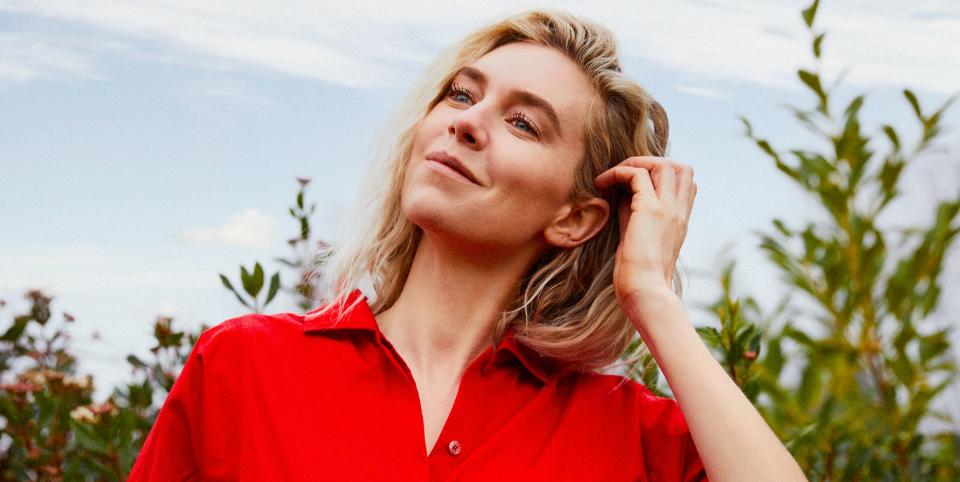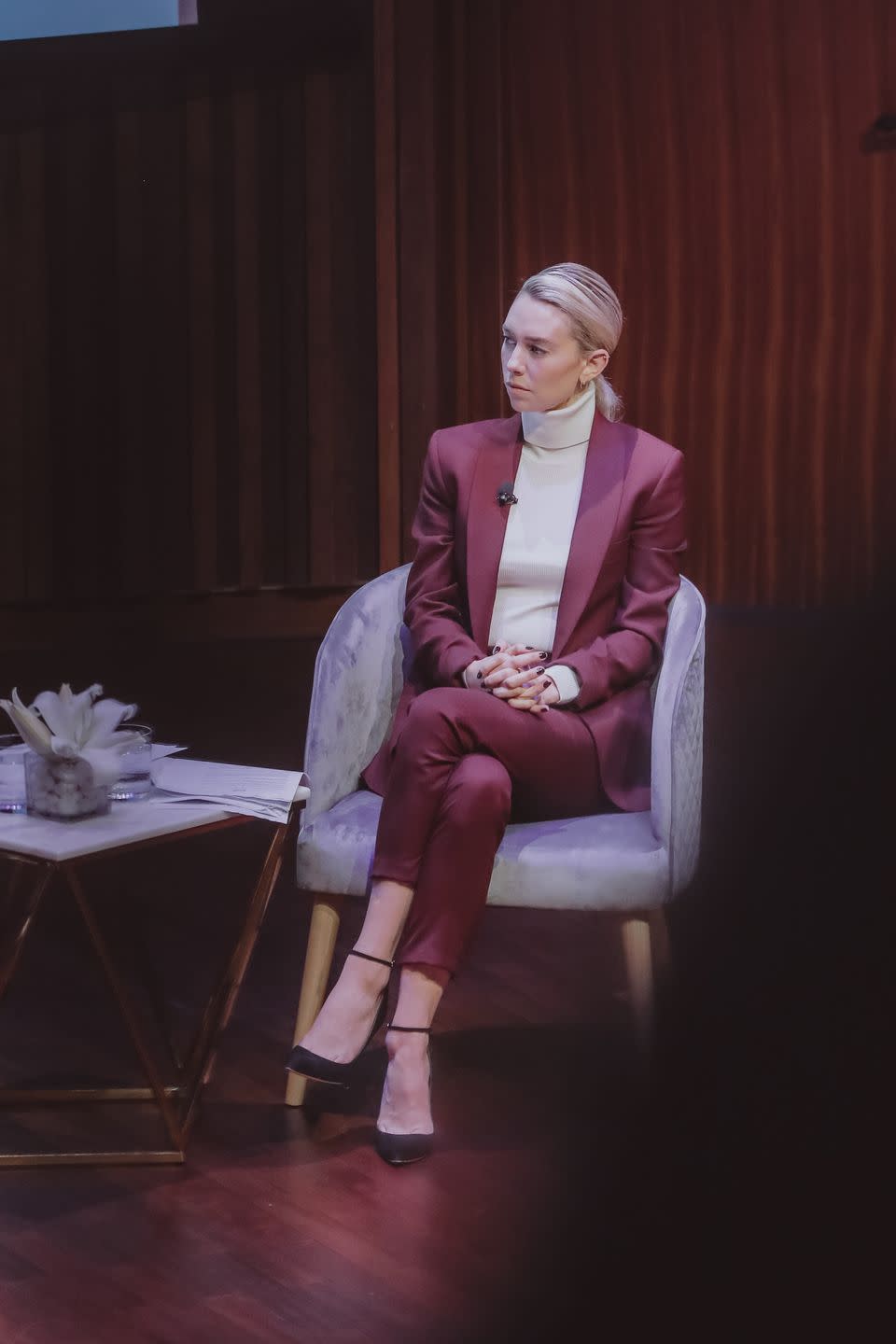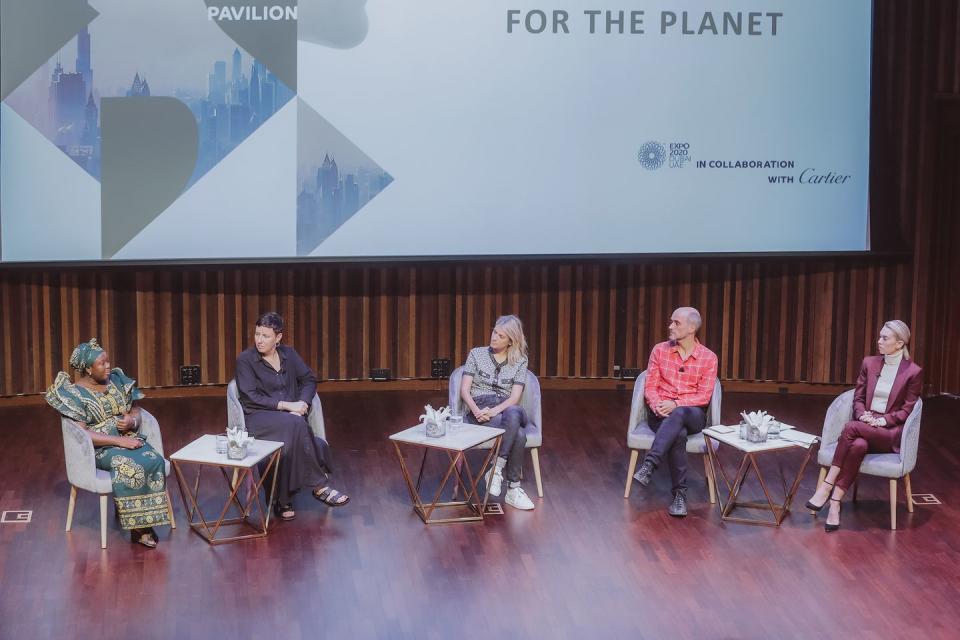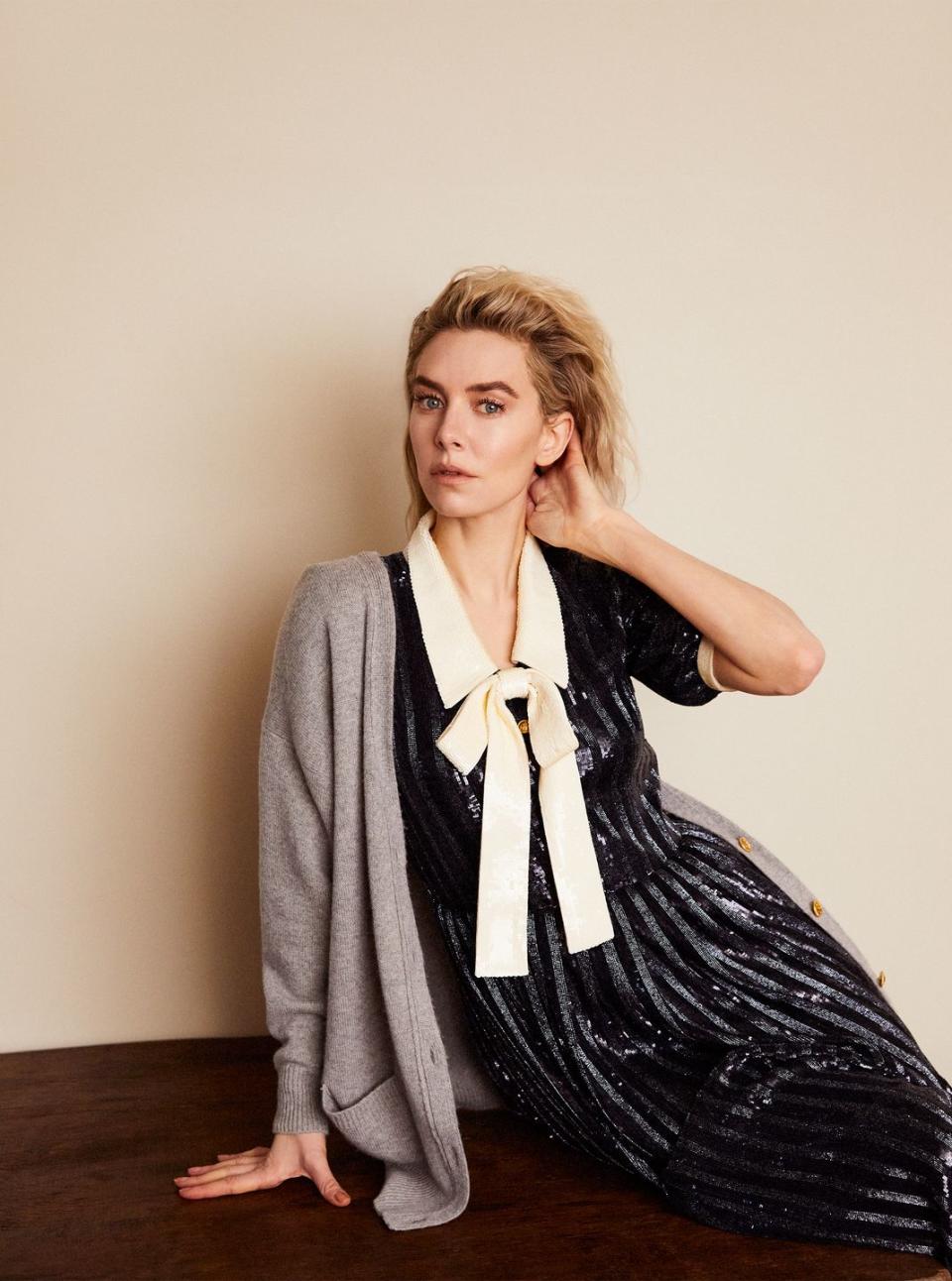Vanessa Kirby on how empowering women can help save the planet

As COP26 focuses global attention on the climate crisis, Vanessa Kirby, the actress and Bazaar cover star, has revealed her own personal commitment to the environment. Speaking at the launch of the Women’s Pavilion at Expo 2020 Dubai, a collaboration with Cartier that celebrates the contribution of women to society, she moderated a discussion between artists and sustainability activists.
Prior to the talk, she spoke to Bazaar’s editor-in-chief Lydia Slater about her new role as ambassador for the charity Amazon Frontlines, and her commitment to bringing women’s untold stories into the spotlight.
Why did you want to speak at the Women’s Pavilion?
"This is the first Expo in 50 years to have a Women’s Pavilion, which is madness when you think about it, and its theme is ‘When women thrive, humanity thrives’. And if one man walks in there and changes his mindset, then that’s awesome. I really think it’s not about tearing men down, it’s about women realising we are more powerful than we have ever been taught - particularly because there’s so much to do everywhere around the world.

"I found the exhibition in the Pavilion very moving. It felt like a coming together of what I really believe in, like putting real female experiences on screen after so many decades of cinema being from the male point of view.
"I feel an incredible personal responsibility to do that with my own production company Aluna Entertainment. It’s linked to us waking up as women and who we are in our own right, as well as to the environment. It sounds crazy but playing a mother giving birth in Pieces of a Woman really brought home to me the power of women as life-givers and creators. And that’s essentially what the earth does – it’s why it’s called Mother Earth. I think it’s all linked to female empowerment."
What was the topic of your panel discussion?
"How artists and activists are coming together dynamically to try and protect the planet. We all have to find a way to cooperate and make a difference. Everyone on the panel has found their own way to do that, from Nimonte Nenquina, the leader of the Waorani tribe and founder of Amazon Frontlines, to the actress and film-maker Melanie Laurent, and Salma Abdulai, who went away to university and then came back to her community with this particular cereal called fonio, an ancient grain that’s climate-resistant, but that nobody was using any more. I’m just a tag-along – I’m humbled by how much I have to learn – but I want to change and I am really open to what they want to teach me."

Why did you take on the role of Amazon Frontlines’ first ambassador?
"I have donated to the charity for years, but I wanted to be more involved. I got in touch and asked if there was a way for me to help raise awareness. These people have lived there for thousands of years, they have far more wisdom about the planet than we do, and they probably have all the answers. That knowledge mustn’t be extinguished. Nimonte can feel the forest hurting, and she is taking action for all of us. I’m really honoured that Cartier is championing such voices, because the more they are heard, the more they can reach people."
What changes have you made personally to lead a more sustainable life?
"Like many people, I have an existential, growing fear around our discordance with nature. I don’t like feeling that we’re helpless and hurtling towards something bad. I’m willing to be open to what change looks like and to live my life accordingly, to keep the best parts of our world but not to do damage. I have been vegan for nearly 12 years, since I read a book called Eating Animals.

"It’s gripping and beautifully written, it doesn’t preach at you, but by the end, I was like: oh wow, OK, now I know… But I don’t often talk about it because there are so many contradictions in the way we all lead our lives, and we are all complicit in one way or another. We each have to find our own path, whether that’s eating less meat or donating to an environmental charity or whatever else we decide to do."
You Might Also Like

 Yahoo Sport
Yahoo Sport 





































